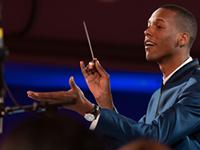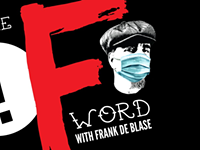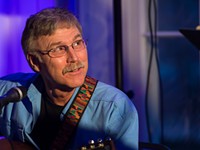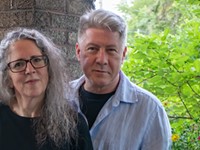Friday, January 17, 2014
Concert Review: RPO's Beethoven's Ninth
Posted By Paloma Capanna on Fri, Jan 17, 2014 at 10:26 AM
Thursday night's Rochester Philharmonic Orchestra concert was the one to attend if you were in the mood for "big." Big, huge orchestra filling the stage.Big, 100-plus-voice choir on risers. And big-voiced soloists, front and center. It was a night of Beethoven's Ninth and a Boulanger Psalm.
The RPO was led by guest conductor Hugh Wolff. Wolff has recorded the complete Beethoven symphonies, and his interests range from Baroque to new compositions. Wolff's studies included conducting with Charles Bruck and composition with Olivier Messiaen. Having lived and studied in Paris was no doubt a contributing influence to Wolff's fine interpretation of the Boulanger.
The Rochester Oratorio Society shared the stage for the entire concert. The ROS is under the direction of Eric Townell. Founded in 1945, ROS pulls its voices from Rochester and a surrounding seven-county region. We would do well to realize that works like the Ninth Symphony can only be mounted because we have so much vocal talent in our region, making it both literally and financially possible.
Four soloists were featured: Kelley Nassief, soprano; Rebecca Ringle, mezzo-soprano; Vale Rideout, tenor; and Jan Opalach, baritone. Each one deserved the audience's applause, and I would welcome an opportunity hear each one in a solo recital so that I could sit back and enjoy the clear, warm sounds of each voice.
The first half of the program consisted of one work, Lili Boulanger's "Psalm 130, Du fond de l'abîme" ("Out of the Depths of the Abyss"). Eerie, unmistakably French, and hypnotic, it is a 30-minute work that must be seen live. If you've watched it on YouTube, you've completely missed the vibratory sensation that can only come through the live experience of the low register in which this work is couched. Low percussion. Long, low pulls across the bass and cello strings. And, the surprisingly low and resonant voice of mezzo-soprano Ringle. Ringle's tone was perfect for Psalm 130, and her emotional connection to the work was evident in every note.
I would expect that last night's audience turnout was enhanced by the billing of the Beethoven's Symphony No. 9 in D Minor, Op. 125, the only work on the second half of the program. Who doesn't love the Ninth? At more than an hour, I'm guessing that many in the audience were simply waiting for those special cello and bass notes signaling that we were coming toward the moment of the chorus bursting into the "Ode to Joy."
The performance of the Ninth Symphony won an immediate standing ovation, and so it should. Compliments across the board.
But, is it enough to mount a massive masterwork of classical music? Or should audiences still ask for more?
What felt to be lacking from go was a vision of the work as a whole - not as something singularly huge, but as something nuanced, surprising, and full of discoveries to be made. With a piece that long, the consistently high volume and tempo became anti-climactic. Where is there to go when a work is already so loud and so fast so often in the first movement, even though it is marked "Allegro ma no troppo, un poco maestoso" (meaning fast, but not too much so, and with a touch of majesty)? The dynamic tension is taken away by that approach, as surely as if a state dinner consists of course after course of luscious sachertorte, flown in from Vienna.
One of the most particular attributes of the RPO under current Conductor Laureate Christopher Seaman is his ability to take the orchestra's string section to a level of volume that is so far beyond "piano" (soft) and with such clarity as to do the seemingly impossible. I've written high praise about this fantastic technique in more than one review over the years. But, last night, with the exception of passages consisting only of cello and bass, I would suggest that the RPO didn't go any softer than a mezzo piano. Bowing furiously in a work such as the Ninth Symphony is not the quest; it is achieving a full range of dynamics that allows for an enhanced, uniquely Beethoven, emotional experience.
I would also question, from a review standpoint, whether a season led entirely by guest conductors is by now presenting challenges for me on benchmarking performance. For critical basics like clean entrances and crisp attacks, is it a particular guest conductor or is it a progressing season without a consistent captain at the helm? Last night's orchestration was a packed stage, along with a guest chorus and four soloists, meaning that even for a full-time music director and conductor there would have been a critical mass of extra work to be done. All things considered, to my sensibilities, I'm going to put a question on whether large works can reasonably be programmed during a season of guest conductors coming off a protracted period of disquietude.
The RPO also performs the program Saturday, January 18, 8 p.m. and Sunday, January 19, 2 p.m. at Kodak Hall at Eastman Theatre. Tickets cost $15-$92. For more information call 454-2100 or visit the website.
Speaking of RPO, Rochester Philharmonic Orchestra
Latest in Music Blog
More by Paloma Capanna
-

The multisport multiverse
Apr 30, 2014 -
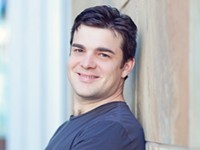
CLASSICAL | Rochester Philharmonic Orchestra
Apr 9, 2014 -
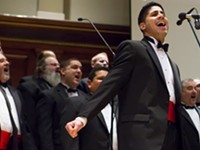
POP/CLASSICAL | Rochester Gay Men's Chorus
Mar 26, 2014 - More »

